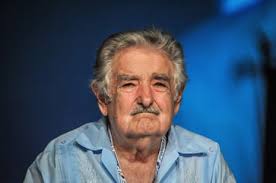
Introduction
José ‘Pepe’ Mujica, the 40th president of Uruguay, is known worldwide not just for his policies but for his unusual lifestyle that emphasizes humility and social justice. His presidency from 2010 to 2015 was characterized by progressive reforms that have influenced not only Uruguay but also the global perception of leadership. With an increasing interest in political figures who challenge norms, Mujica remains a relevant icon even years after leaving office.
Background and Presidency
Born on May 20, 1935, in Montevideo, Mujica grew up during a tumultuous period in Uruguayan history. He became politically active as a young man, eventually joining the Tupamaros, a leftist urban guerrilla group. After serving nearly 15 years in prison for his revolutionary activities, Mujica emerged as a symbol of resilience. In 2009, he was elected president of Uruguay, leading the country with a unique approach that prioritized welfare and equality.
During his term, Mujica implemented groundbreaking laws, including the legalization of same-sex marriage and the regulation of the cannabis market. These reforms not only garnered international attention but also placed Uruguay at the forefront of progressive governance in Latin America. Mujica’s administration was marked by an unwavering commitment to social justice, reducing poverty levels and enhancing public services.
Post-Presidency Influence
Even after leaving office, Mujica has remained actively engaged in public discourse, speaking on issues ranging from climate change to social inequality. His quotes and speeches, often filled with philosophical insights, have resonated with people around the world who seek meaningful change and humane governance. Mujica’s advocacy for down-to-earth leadership, illustrated by his modest lifestyle—living on a small farm and driving an old Volkswagen Beetle—continues to attract admirers and inspire movements focused on sustainability and social responsibility.
Conclusion
Pepe Mujica’s legacy is significant for contemporary politics, demonstrating that leaders can emerge from humble beginnings and prioritize the welfare of their citizens over material gain. His emphasis on compassion and equality is a vital lesson for current and future leaders. As societies grapple with increasing inequality and political division, Mujica’s story serves as a reminder of the power of simple humanitarian values in initiating profound change. The world continues to watch and learn from his unique approach to leadership.






